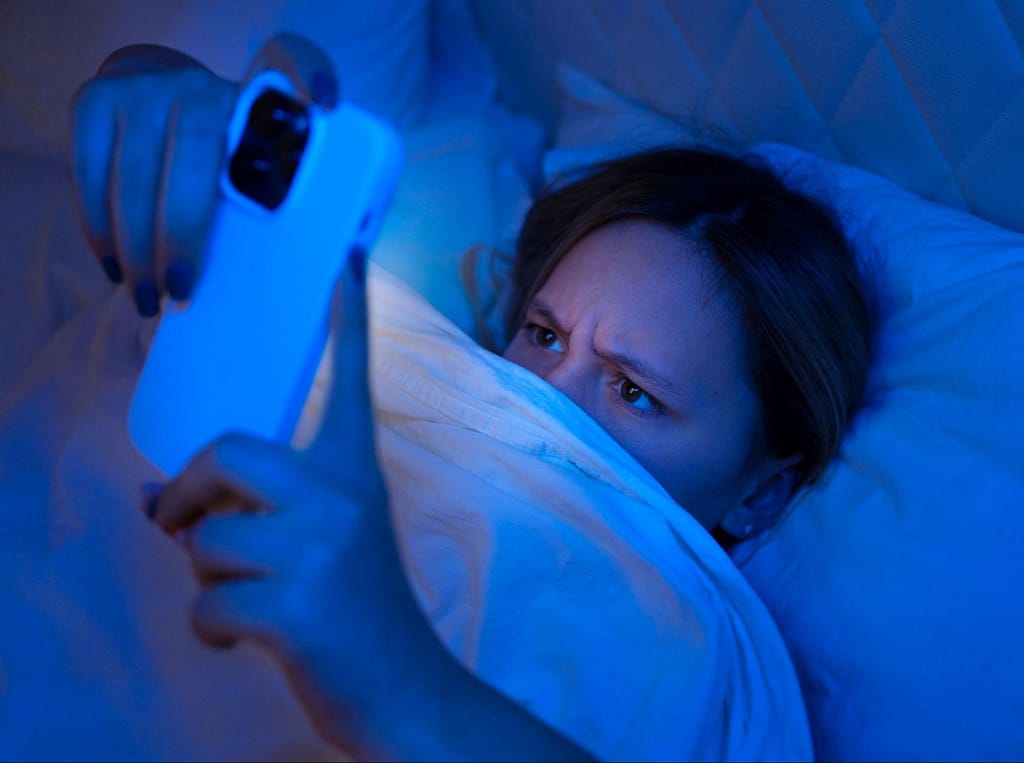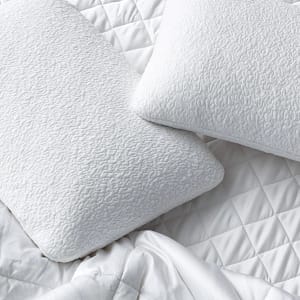Artificial lights and digital displays are ubiquitous in today’s digitized world. The blue light emitted by modern electronic devices, including cell phones, laptops, and workplace fluorescent lights, has been related to sleep disruptions. Blue lights can cause retinal damage, digital eye strain, and macular degeneration.
How does blue light influence our sleep? What can we do to lessen its effects? Today, we will find out.
The Science Behind Blue Light
Lights from the sun and artificial sources like LED lights, electric lights, and computer screens are all blue light. It is a powerful kind of visible light with a small wavelength.
To the human eye, blue light looks blue because it has a shorter wavelength and more energy than the other colors in the visible light range. It’s also called high-energy visual (HEV) light.

Where Does Blue Light Come From?
Blue light can come from natural sources like sunshine. However, it can also come from man-made sources like:
- Lights with LEDs
- Lights that glow
- Digital screens (TVs, computers, smartphones, and tablets)
- Light lamps that use less energy
How Is Blue Light Affecting Your Sleep?
The quantity of blue light from screens is negligible compared to what people get from the sun. The long-term impacts of using digital gadgets, however, have raised some concerns. Particularly when displays are held too near to the eyes for extended periods, the consequences can be scary.
Our eyes are not very effective at filtering out blue light. Almost all of it makes it past the cornea and lens to the retina. Here, light is converted into a picture that the brain can interpret.
Eye disorders, including age-related macular degeneration, may develop from prolonged exposure to blue light. Cataracts, eye cancer, and growths on the cornea (the transparent covering that protects the white of the eye) are also associated with it. The National Eye Institute found that young generations are an easy target for the adverse side effects of blue light from gadgets compared to adults.
Blue Light and Melatonin Production
Melatonin is a hormone that controls when we sleep and wake up. During the night, the pineal gland in the brain releases it. This hormone gets our bodies ready for sleep and makes us feel sleepy.
The sleep hormone melatonin may be suppressed by late-night blue light exposure. Blue light simulates the effects of sunshine, it causes us to feel alert and awake.
When we are exposed to blue light at night, our body’s normal synthesis of melatonin is interrupted, making it harder for us to fall asleep and remain asleep.
Effects on Sleep Quality
The difficulty of falling asleep and the quality of sleep both are negatively impacted by exposure to blue light. Nighttime blue light exposure has been linked to the following, according to studies:
- Low levels of rapid eye movement sleep (REM sleep; crucial for dreaming and memory consolidation).
- The internal body clock, or circadian rhythm, has been thrown off.
- Trouble getting to sleep and staying asleep
- Irregular sleep schedule leading to increased daily drowsiness and tiredness
5 Tips To Minimize the Impact of Blue Light on Our Sleep
- Limiting screen time just before bed is one of the most effective methods to lessen the effects of blue light on sleep. You should turn off all electronic devices at least two to three hours before bedtime.
- Use Blue Light Blocking Glasses. They are specially designed glasses that filter out blue light from digital screens. You can wear them while using digital devices at night to reduce the amount of blue light that reaches your eyes.
- To avoid digital eye pain, follow the rule that 20s. 20 seconds of every 20 minutes should be spent staring at something 20 feet away.
- The “night mode” or “blue light filter” feature is now standard on many mobile devices. This function lessens the screen’s blue-light output, which is both softer on the eyes and less disruptive to sleep.
- Using lower, warmer lighting at night counteracts the effects of blue light on sleep. We should stay away from bright, cool mornings and instead use warmer, softer lights in our beds and living rooms. Let our bodies know that it’s time to relax and get ready for sleep by doing this.
Did you feel like your eyes hurt very often after using the devices the whole day? It might be because of the blue light, and you should immediately see a doctor.
Also, we are just one knock away! Join us on our WhatsApp for any sleep-related issues.
